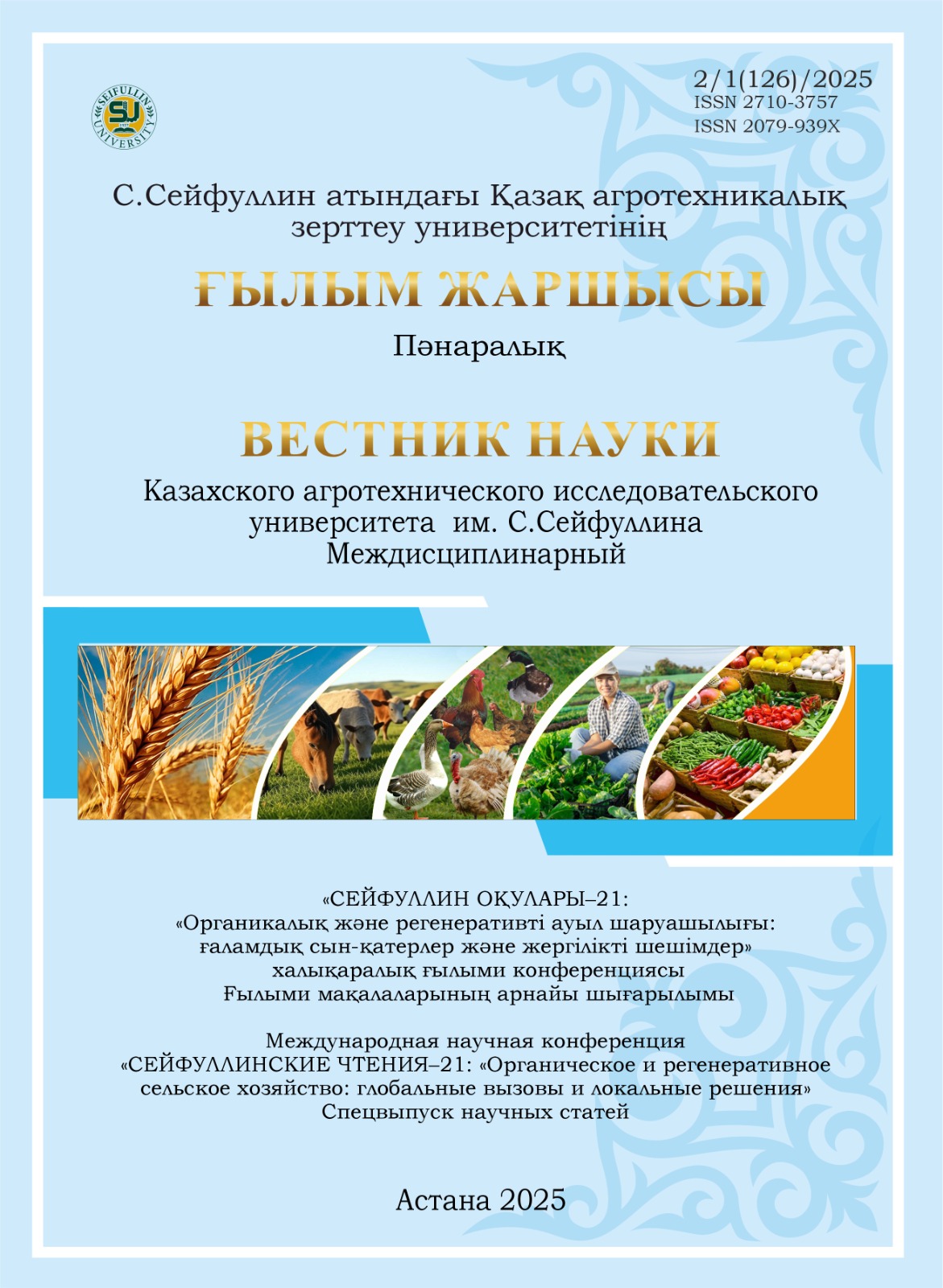Effect of salt-tolerant microorganisms on the growth and development of seeds
DOI:
https://doi.org/10.51452/kazatu.2025.2/1(126).1926Keywords:
microorganism; growth stimulation; barley; germination; culture; strain.Abstract
Background and Aim. The role of modern microbiological methods in regulating soil fertility, understanding the physiological and biochemical characteristics of agricultural crops, and managing metabolic processes in plant organisms has been well-established to date. The importance of regulating the intensity of nutrient absorption from the soil, specifically by enhancing nutrient absorption through the root system by increasing the activity of soil microorganisms, is a relevant task in the development of organic agriculture. The aim of this study is to evaluate the growth-promoting properties of strains isolated from the microflora of saline soils in Northern Kazakhstan for stimulating cereal crop growth.
Materials and Methods. The study investigated the growth stimulating properties of salt-tolerant strains under laboratory conditions using Tselinny 2005 barley seeds. For this, the seeds were treated with microbial culture filtrates (titer 100 CFU/mL) for 24 hours, while the control sample was soaked in distilled water. Seed germination was assessed by counting the normal seedlings seven days after germination at room temperature. Additionally, germination and growth intensity rates were calculated using a specific formula.
Results. The microorganisms isolated from the rhizosphere of salt-tolerant plants of Northern Kazakhstan were studied in 2024 at the Microorganism Biotechnology Laboratory of ‘BIO-KATU’ LLP. Their impact on the germination of barley seeds of the “Tselinnyi 2005” variety was evaluated, leading to the selection of six strains.
Conclusion. The study of the effect of the isolated strains on the growth parameters of barley seeds of the “Tselinnyi 2005” variety under in vitro conditions showed that they have a positive impact on seed quality. Treatment of the seeds with cultural filtrates resulted in a 1.67-fold increase in germination, while the growth intensity increased by 1.25 times. The root length increased by up to 37%, and the seedling growth was enhanced by approximately 9.5%. As a result of the study, the strains Sphingobacterium caeni 2P, Halomonas meridiana 48P, Staphylococcus pasteuri 50P, Flavobacterium frigidimaris 61P, Sphingobacterium faecium 70P, and Streptomyces europaeiscabiei 85P were selected, which will be further used in the development of biopreparations and consortia for the restoration of saline soils.

